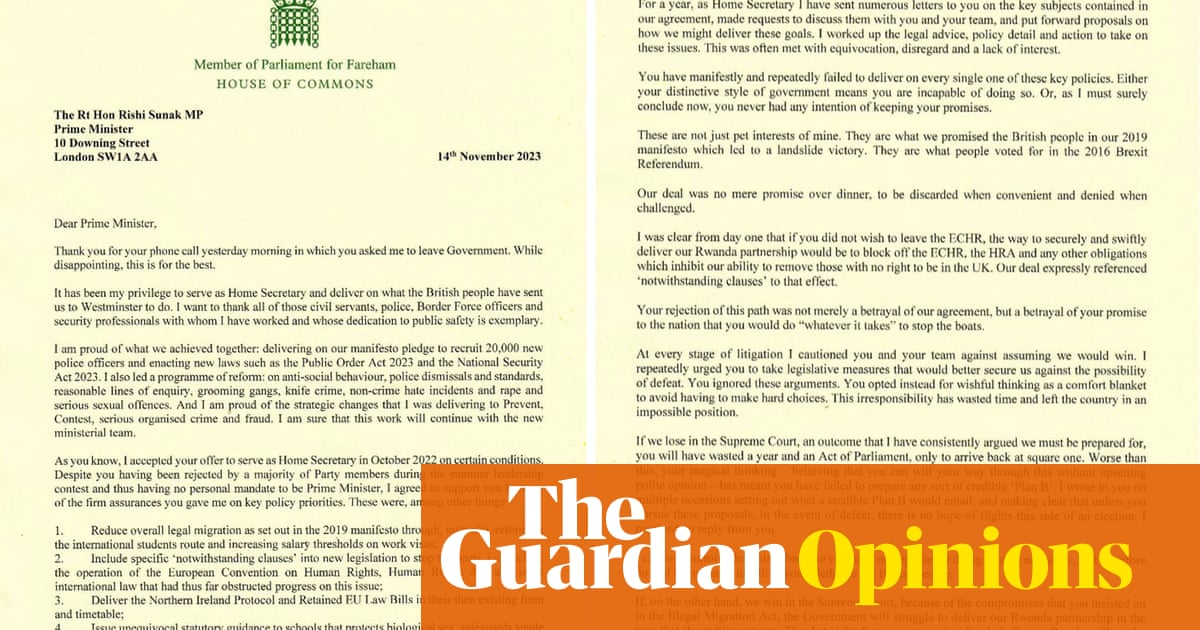
One big theme has dominated Tory party conference at Manchester this week: levelling up. Boris Johnson, we are being told, is on a mission to rescue British working people who have been forgotten and left behind in today’s UK.
According to this powerful narrative Keir Starmer’s Labour party is a manifestation of a “woke” metropolitan elite utterly alien to the “red wall” voters who flocked to the Tories at the last election.
The Pandora papers revelations undermine that Tory story. Yes, there are struggling people who have been forgotten by the system. Yes it’s a worthy cause to give them a much bigger say in public life. But no, the Tories don’t generally represent such people.
Johnson’s Conservative party essentially belongs to the super-rich. The billionaires. Those with privileged access to the prime minister and the chancellor of the exchequer. To the large and in many cases insalubrious cast of men and women with walk-on appearances in the Pandora papers scandal.
This class of Conservatives does not seem to see the British state – as Tories have historically claimed to do – as something to which you dedicate a life of service. They seem to see it rather differently: as something to be plundered and used for self-enrichment.
Take the honours system. Traditionally honours have been used to reward people who have contributed to the good of the nation. In recent history honours have become a commodity that may be bought and sold. Take public contracts. Traditionally they are won in open public competition. Not any more.
Oscar Wilde defined a cynic as someone who knows the price of everything and the value of nothing. Welcome to the world of Johnson and his squalid associates. It doesn’t appear to matter how Tory donors made their money, where they paid their taxes, or which corners they cut. What matters is the size of the donation.
CertainlyJohnson supports levelling up. He wants to level up the billionaires. They’ve grown richer than ever before under his premiership. This may help explain why Tory donors are so much more likely to win Covid contracts than others. Access, it seems, helps win contracts, and access can come in return for a fat donation.
This is why it is impossible to overestimate the importance of this week’s Pandora revelations. They make a textbook study of how the super-rich have bought politics. In some countries this phenomenon is out there and in the open.
Let’s take an example of another country suffering from fuel queues: Lebanon. It’s no surprise at all to find newly appointed prime minister Najib Mikati and central bank governor Riad Salameh among several Lebanese political and financial officials named in the Pandora papers as having wealth hidden in offshore tax havens – at a time when ordinary Lebanese are having their savings wiped out. Lebanon has long been run as a private fiefdom for the super-rich.
The Pandora papers show that Britain is heading the same way. Access to British politics – and in particular the Johnson Tories – has been bought wholesale by a new class of tycoon funders. They may be British citizens but in many cases they pay very little tax in this country, and are in many cases essentially based offshore.
Their existence has been an open secret for years but not publicly understood, perhaps in part because some of Britain’s wealthy newspaper owners themselves have a notorious reluctance to pay taxes.
It’s important to understand that this new system has only sprung up recently. Go back only a few decades and the Tory party could count on a mass membership for the bulk of its funds in the shape of small donations. In recent years membership has gone into freefall, and the donors have largely taken over.
Tony Blair (little surprise to see his appearance in Pandora) helped create this model during his famous period in opposition before 1997. Eager to sideline the unions, the ambitious young Labour leader and his aide Jonathan Powell encouraged fundraising from wealthy donors.
The Tories followed suit. They may have felt they had little choice. Money was hard to come by and the membership was dying. Suddenly party donors became important figures, men and women of note.
But it is Johnson who has been the most shameless by far about this arrangement. On becoming Tory leader he appointed Ben Elliot, whose former business clients include Mohamed Amersi, who looms large in the Pandora papers) as Tory co-chair. This appointment changed the structure of the British Tory party. And it is no surprise to learn, courtesy of the Pandora papers, that Elliot jointly owned a secret offshore film financing business.
At first sight Eton-educated Elliot looks like a copper-bottomed establishment Conservative. A nephew of the Duchess of Cornwall, Prince Charles’s wife, he’s the son of Simon Elliot, a Dorset landowner.
If you look more closely the appointment seems odder and odder. Tory chairs are normally powerful politicians in their own right – think Theresa May, David Davies or further back Norman Tebbit, William Whitelaw or Peter Carrington. Significant figures by any standards. The role of Conservative party chairs, from Carrington to May, was to represent the views of the Tory grassroots and explain the actions of their leadership.
I have never found serious evidence that Elliot does much of this important but gruelling political work, if any. Take the Hartlepool and Batley and Spen byelections. A traditional chair would have been a prominent figure organising the campaign and explaining the results on television. Elliot kept a very low profile.
Elliot is not even an MP and I can discover no significant record in British politics until he became treasurer for Zac Goldsmith’s campaign for the London mayoralty in 2016. Yet he’s at the heart of Johnson’s Tory establishment. He’s not there to talk to the grassroots. He’s there to manage the donors. The people who matter.
Traditionally that’s been the role of the party treasurer, a relatively lowly party official. In the modern Tory party the job has become so important that the treasurer has been promoted to party chair and effectively become the boss.
The Elliot model for the Tory party is based on his business, Quintessentially. It is a concierge service for rich people who want introductions and invitations at the top level of society. Amersi has deliciously called the system “access capitalism”, a term that deserves to find its way into a dictionary of quotations. You buy your way in.
Elliot will be remembered for turning politics into a financial commodity. Now he needs to come out in public and answer urgent questions: who investigates Tory donors? Does it matter if they don’t pay tax? Do you care if they have a murky past? Where do you stand on tax havens?
It’s not just Elliot who needs to break the habit of a lifetime and answer questions. Now that Pandora’s box has been well and truly opened. Johnson, the big winner from this rotten financial system, needs to explain to British voters why the Tory party appears to be funded by a new class of super-rich tax avoiders.
And tell us what they get in return.
Peter Oborne is a journalist and author
The Pandora papers
Join Guardian head of investigations, Paul Lewis, and guests in this special live-streamed event looking in depth into the Pandora papers revelations, on Monday 18 October, 8pm BST | 9pm CEST | 12am PDT | 3pm EDT. Book tickets here












